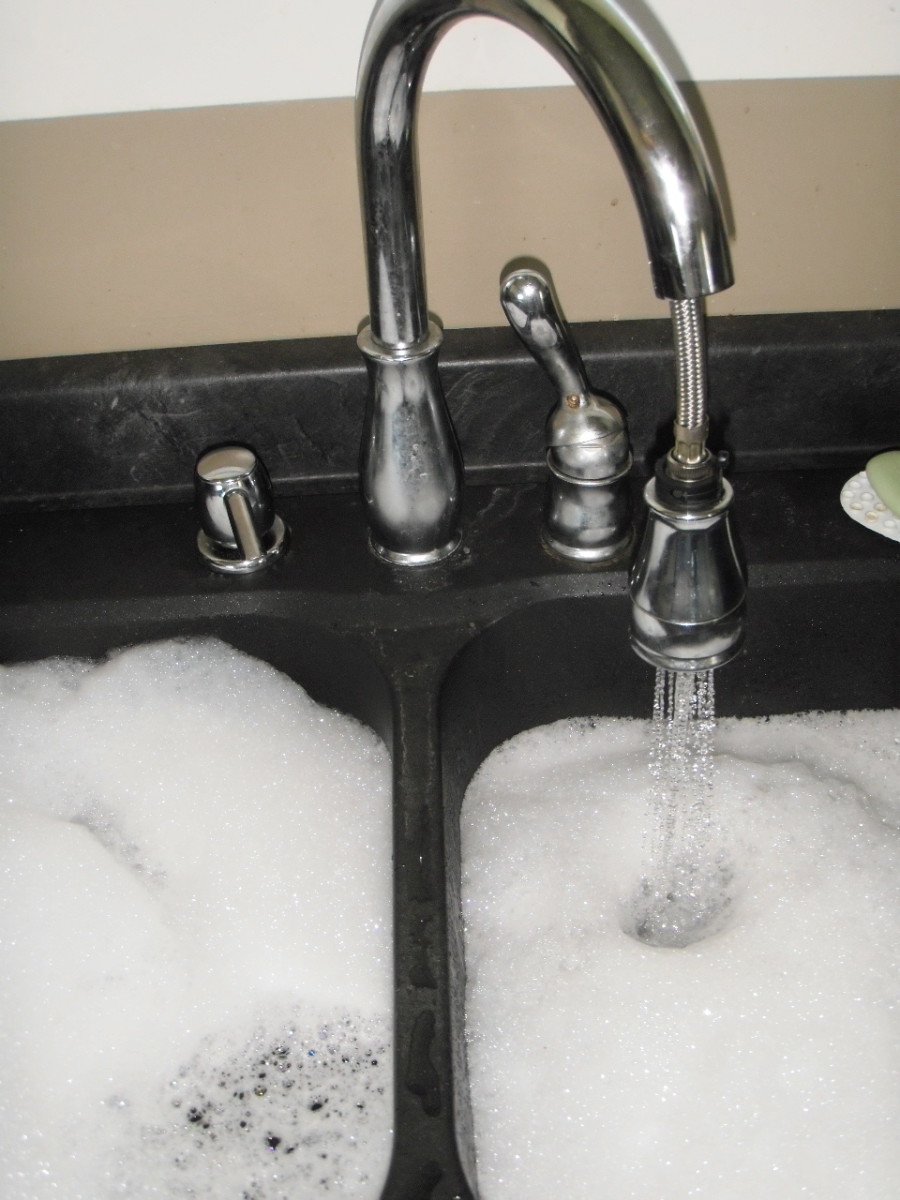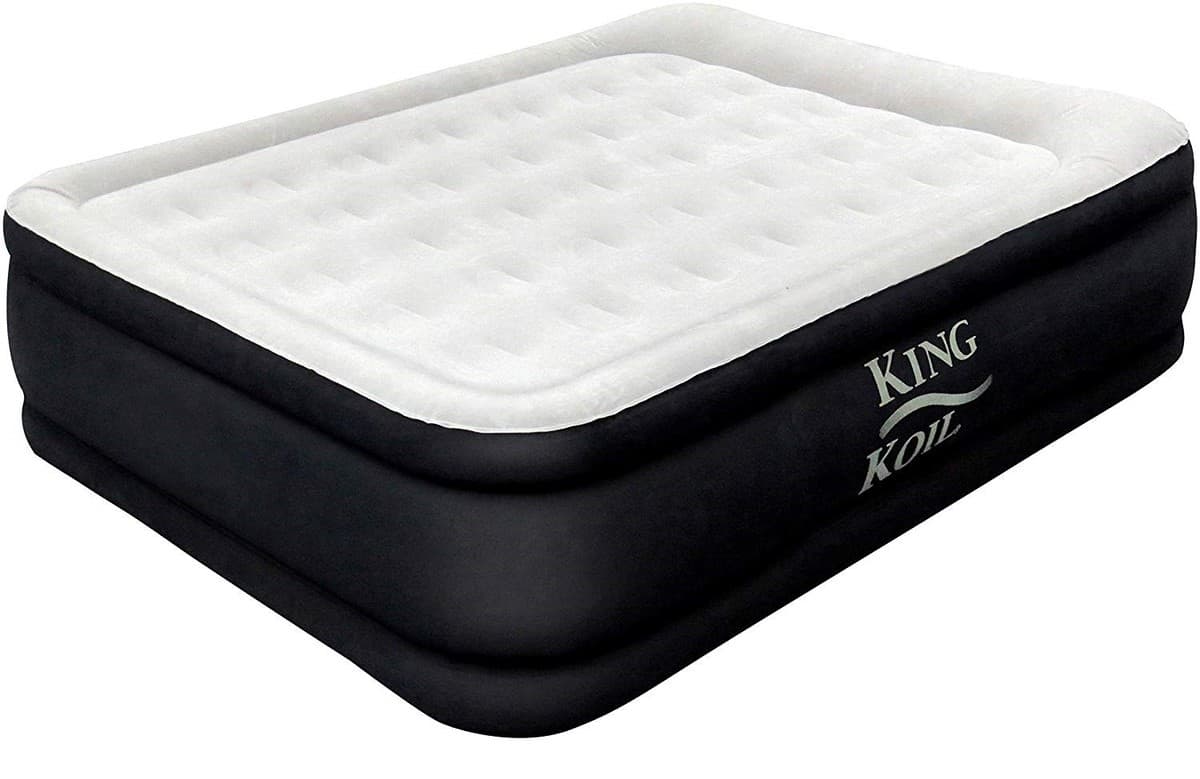Kitchen sinks with garbage disposals are a convenient and efficient way to dispose of food waste. However, over time, the drain can become clogged and cause water to drain slowly or not at all. This can be frustrating and can lead to unpleasant odors and potential plumbing issues. But don't worry, there are simple and effective ways to unclog a kitchen sink with a garbage disposal. The first step is to identify the cause of the clog. It could be a buildup of food particles, grease, or other debris. Once you know the cause, you can choose the best method for unclogging your sink. Here are 5 ways to unclog a kitchen sink drain with a garbage disposal:Unclogging a Kitchen Sink with a Garbage Disposal
If your kitchen sink is draining slowly, it's important to address the issue before it becomes a bigger problem. The longer you wait, the more difficult it will be to clear the clog. Here are some steps to help you fix a slow draining kitchen sink: 1. Use a Plunger Plungers are a simple and effective tool for unclogging kitchen sinks. First, fill the sink with enough water to cover the rubber portion of the plunger. Then, vigorously plunge the drain for a few minutes. This will create suction and help to loosen and remove the clog. If the clog is stubborn, you may need to repeat this process a few times. 2. Use a Drain Snake A drain snake, also known as a plumber's snake, is a long, flexible tool that can be inserted into the drain to break up and remove the clog. Simply insert the snake into the drain and turn the handle to push it through the pipes. Once you reach the clog, continue turning the handle to break it up and pull it out. Be sure to wear gloves and protective eyewear when using a drain snake. 3. Try a Natural Solution If you prefer to use natural methods, there are a few options for unclogging a kitchen sink. One popular method is to pour a cup of baking soda down the drain, followed by a cup of vinegar. Let it sit for 10-15 minutes before pouring boiling water down the drain. This will help to dissolve and break up the clog. You can also try using a mixture of salt and hot water. 4. Use a Chemical Drain Cleaner If the clog is particularly stubborn, you may need to use a chemical drain cleaner. These products contain powerful chemicals that can dissolve and remove tough clogs, but they can also be harmful to your pipes and the environment. Be sure to read and follow the instructions carefully and use protective gear. 5. Call a Professional If none of these methods work, it may be time to call a professional plumber. They have the tools and expertise to effectively unclog your kitchen sink and ensure that there are no underlying issues causing the slow drain.How to Fix a Slow Draining Kitchen Sink
If your kitchen sink is completely clogged and the water won't drain at all, you'll need to take more drastic measures to clear the clog. Here's what you can do: 1. Remove Standing Water If there is standing water in your sink, it's important to remove as much of it as possible before attempting to unclog the drain. Use a bucket or a large bowl to scoop out the water and dispose of it in a different sink or toilet. 2. Check the Garbage Disposal If your kitchen sink has a garbage disposal, it's possible that the clog is located in the disposal itself. Before attempting to clear the clog, make sure the disposal is turned off and unplugged. Use tongs or pliers to remove any visible debris from the disposal. Never put your hands inside the disposal. 3. Use a Plunger If the clog is not in the disposal, you can try using a plunger to remove it as described above. Be sure to cover the disposal opening with a towel or rag to prevent any water or debris from coming out. 4. Use a Drain Snake If the plunger doesn't work, you can try using a drain snake to break up and remove the clog. Be sure to follow the instructions and use protective gear. 5. Call a Professional If the clog persists, it's best to call a professional plumber. They can use specialized tools and techniques to remove the clog and get your sink draining properly again.How to Clear a Clogged Kitchen Sink Drain
If you're experiencing a slow draining kitchen sink, there are a few troubleshooting steps you can take to identify the cause and find a solution: 1. Check the Garbage Disposal The first step is to check your garbage disposal, if you have one. If it's clogged or not working properly, it could be causing the slow drain. 2. Check the P-Trap The P-trap is the curved pipe under your sink that helps to trap debris and prevent it from clogging your pipes. Over time, this trap can become clogged itself and cause drainage issues. Use a bucket or bowl to catch any water that may come out and remove the trap to clean it out. 3. Check the Vent A blocked or damaged vent can also cause a slow draining kitchen sink. The vent is usually located on the roof and helps to release air and allow water to flow freely. If you suspect the vent is the issue, it's best to call a professional.Troubleshooting a Slow Draining Kitchen Sink
If you're dealing with a slow kitchen sink drain, you're not alone. It's a common issue that can be caused by a variety of factors. The key is to identify the cause and take the appropriate steps to fix it. Here are some general tips for fixing a slow kitchen sink drain: 1. Use Hot Water Sometimes, simply pouring hot water down the drain can help to loosen and remove a clog. This is especially effective if the clog is caused by grease or oil buildup. Be careful not to use boiling water, as it can damage your pipes. 2. Use a Plunger As mentioned earlier, plungers are a useful tool for unclogging kitchen sinks. Be sure to use a plunger specifically designed for sinks, as toilet plungers are not suitable. 3. Use a Drain Snake If the clog is more stubborn, a drain snake may be necessary to remove it. If you don't have one, you can purchase one at your local hardware store or call a professional plumber. 4. Try a Homemade Solution If you prefer to use natural methods, there are several household items that can help to unclog your kitchen sink. Baking soda, vinegar, salt, and hot water are all effective options. Be cautious when using chemical cleaners, as they can be harmful to your pipes and the environment.How to Fix a Slow Kitchen Sink Drain
If you're the DIY type, there are several solutions you can try to fix a slow draining kitchen sink: 1. Create a Homemade Drain Cleaner Mix together equal parts baking soda and salt and pour it down the drain. Then, pour a cup of vinegar down the drain and let it sit for 10-15 minutes. Finally, pour boiling water down the drain to flush out the clog. 2. Use a Plumbing Snake If you have a plumbing snake, you can use it to break up and remove the clog. Follow the instructions and use protective gear while using the snake. 3. Try a Chemical Drain Cleaner If the clog is too stubborn for homemade solutions, you can try using a chemical drain cleaner. Be sure to read and follow the instructions carefully and use protective gear.DIY Solutions for a Slow Draining Kitchen Sink
If you have a garbage disposal, it's important to take extra precautions when unclogging your kitchen sink. Here's what you can do: 1. Turn off the Power The first step is to turn off the power to your garbage disposal. This will prevent any accidents while you're working on the drain. 2. Remove Debris Use tongs or pliers to remove any visible debris from the disposal. Never put your hands inside the disposal. 3. Use a Plunger If the clog is not in the disposal, you can try using a plunger to remove it. Be sure to cover the opening of the disposal with a towel or rag to prevent any water or debris from coming out. 4. Use a Drain Snake If the plunger doesn't work, you can try using a drain snake to break up and remove the clog. Be sure to follow the instructions and use protective gear. 5. Call a Professional If none of these methods work, it's best to call a professional plumber. They can use specialized tools and techniques to remove the clog and get your sink draining properly again.How to Unclog a Kitchen Sink with a Garbage Disposal
Prevention is key when it comes to keeping your kitchen sink drain clear and functioning properly. Here are some tips to help prevent future clogs: 1. Avoid Pouring Grease Down the Drain Grease and oil can solidify and cause clogs in your pipes. Instead, pour it into a container and dispose of it in the trash. 2. Use a Drain Strainer Install a drain strainer in your kitchen sink to catch food particles and debris. This will prevent them from going down the drain and causing clogs. 3. Run Hot Water After Using the Disposal After using your garbage disposal, run hot water down the drain for a few minutes. This will help to flush out any remaining debris and prevent clogs. 4. Clean the Disposal Regularly To keep your garbage disposal functioning properly, it's important to clean it regularly. You can do this by pouring a cup of baking soda down the drain, followed by a cup of vinegar. Let it sit for 10-15 minutes before pouring hot water down the drain.Tips for Clearing a Slow Kitchen Sink Drain
There are several common causes of a slow draining kitchen sink with a garbage disposal: 1. Food Particles and Debris Food particles, grease, and other debris can accumulate in your pipes and cause a clog. 2. Damaged or Clogged P-Trap The P-trap, as mentioned earlier, can become clogged or damaged and cause a slow draining sink. 3. Blocked Vent If the vent on your sink is blocked or damaged, it can impede water flow and cause a slow drain. 4. Faulty Garbage Disposal If your garbage disposal is not working properly, it can cause drainage issues in your sink. 5. Old or Damaged Pipes Over time, pipes can become corroded, cracked, or damaged, causing drainage problems in your sink. In conclusion, a slow draining kitchen sink with a garbage disposal can be a frustrating and unpleasant problem. But with the right tools and techniques, you can easily unclog your sink and prevent future issues. Remember to always take proper precautions and, if necessary, seek the help of a professional plumber. Keep these tips in mind and you'll have a clear and efficient kitchen sink drain in no time.Common Causes of a Slow Draining Kitchen Sink with a Garbage Disposal
The Importance of Maintaining a Healthy Kitchen Sink Drain with Disposal

Prevent Clogs and Foul Odors
 One of the most frustrating and unpleasant experiences in the kitchen is dealing with a slow kitchen sink drain. Not only does it disrupt your daily routine, but it can also create unpleasant odors and even lead to clogs. This is especially true if you have a garbage disposal unit installed in your sink.
Regular maintenance and care for your kitchen sink drain with disposal is crucial in preventing these issues and ensuring a healthy and functional kitchen.
One of the most frustrating and unpleasant experiences in the kitchen is dealing with a slow kitchen sink drain. Not only does it disrupt your daily routine, but it can also create unpleasant odors and even lead to clogs. This is especially true if you have a garbage disposal unit installed in your sink.
Regular maintenance and care for your kitchen sink drain with disposal is crucial in preventing these issues and ensuring a healthy and functional kitchen.
Clearing Out Buildup and Debris
:max_bytes(150000):strip_icc()/kitchen-sink-171366298-5841b8de3df78c0230af5814.jpg) Over time, debris and food particles can accumulate in your kitchen sink drain, especially if you have a garbage disposal unit. These particles can get stuck in the blades of the disposal or build up in the pipes, leading to slow draining and eventually clogs.
Regularly clearing out this buildup can help prevent clogs and keep your sink draining smoothly.
One effective way to do this is by pouring a mixture of hot water and vinegar down the drain, followed by baking soda. This will help break down any buildup and keep your drain smelling fresh.
Over time, debris and food particles can accumulate in your kitchen sink drain, especially if you have a garbage disposal unit. These particles can get stuck in the blades of the disposal or build up in the pipes, leading to slow draining and eventually clogs.
Regularly clearing out this buildup can help prevent clogs and keep your sink draining smoothly.
One effective way to do this is by pouring a mixture of hot water and vinegar down the drain, followed by baking soda. This will help break down any buildup and keep your drain smelling fresh.
Minimizing Bacterial Growth
 A slow kitchen sink drain can also create a breeding ground for harmful bacteria. The damp and dark environment of a clogged drain is the perfect place for bacteria to thrive, which can lead to foul odors and even health hazards.
Properly maintaining and cleaning your kitchen sink drain with disposal can help prevent the growth of harmful bacteria, ensuring a healthy environment in your kitchen.
Regularly using a natural, bacteria-fighting cleaner, such as lemon juice or baking soda, can help keep your drain clean and free from harmful bacteria.
A slow kitchen sink drain can also create a breeding ground for harmful bacteria. The damp and dark environment of a clogged drain is the perfect place for bacteria to thrive, which can lead to foul odors and even health hazards.
Properly maintaining and cleaning your kitchen sink drain with disposal can help prevent the growth of harmful bacteria, ensuring a healthy environment in your kitchen.
Regularly using a natural, bacteria-fighting cleaner, such as lemon juice or baking soda, can help keep your drain clean and free from harmful bacteria.
Preserving the Lifespan of Your Disposal Unit
 A garbage disposal unit is a convenient and helpful addition to any kitchen, but it also requires proper care and maintenance to ensure its longevity.
A slow kitchen sink drain can put extra strain on your disposal unit, leading to wear and tear and potentially costly repairs.
By regularly cleaning and maintaining your drain, you can help prolong the lifespan of your disposal unit and save yourself from unexpected expenses in the future.
A garbage disposal unit is a convenient and helpful addition to any kitchen, but it also requires proper care and maintenance to ensure its longevity.
A slow kitchen sink drain can put extra strain on your disposal unit, leading to wear and tear and potentially costly repairs.
By regularly cleaning and maintaining your drain, you can help prolong the lifespan of your disposal unit and save yourself from unexpected expenses in the future.
Conclusion
 In conclusion, a slow kitchen sink drain with disposal is not only a nuisance but also a potential health hazard. By taking the time to properly maintain and care for your drain, you can prevent clogs, foul odors, bacterial growth, and prolong the lifespan of your disposal unit.
Make it a part of your regular cleaning routine to keep your kitchen sink drain with disposal healthy and functional.
In conclusion, a slow kitchen sink drain with disposal is not only a nuisance but also a potential health hazard. By taking the time to properly maintain and care for your drain, you can prevent clogs, foul odors, bacterial growth, and prolong the lifespan of your disposal unit.
Make it a part of your regular cleaning routine to keep your kitchen sink drain with disposal healthy and functional.


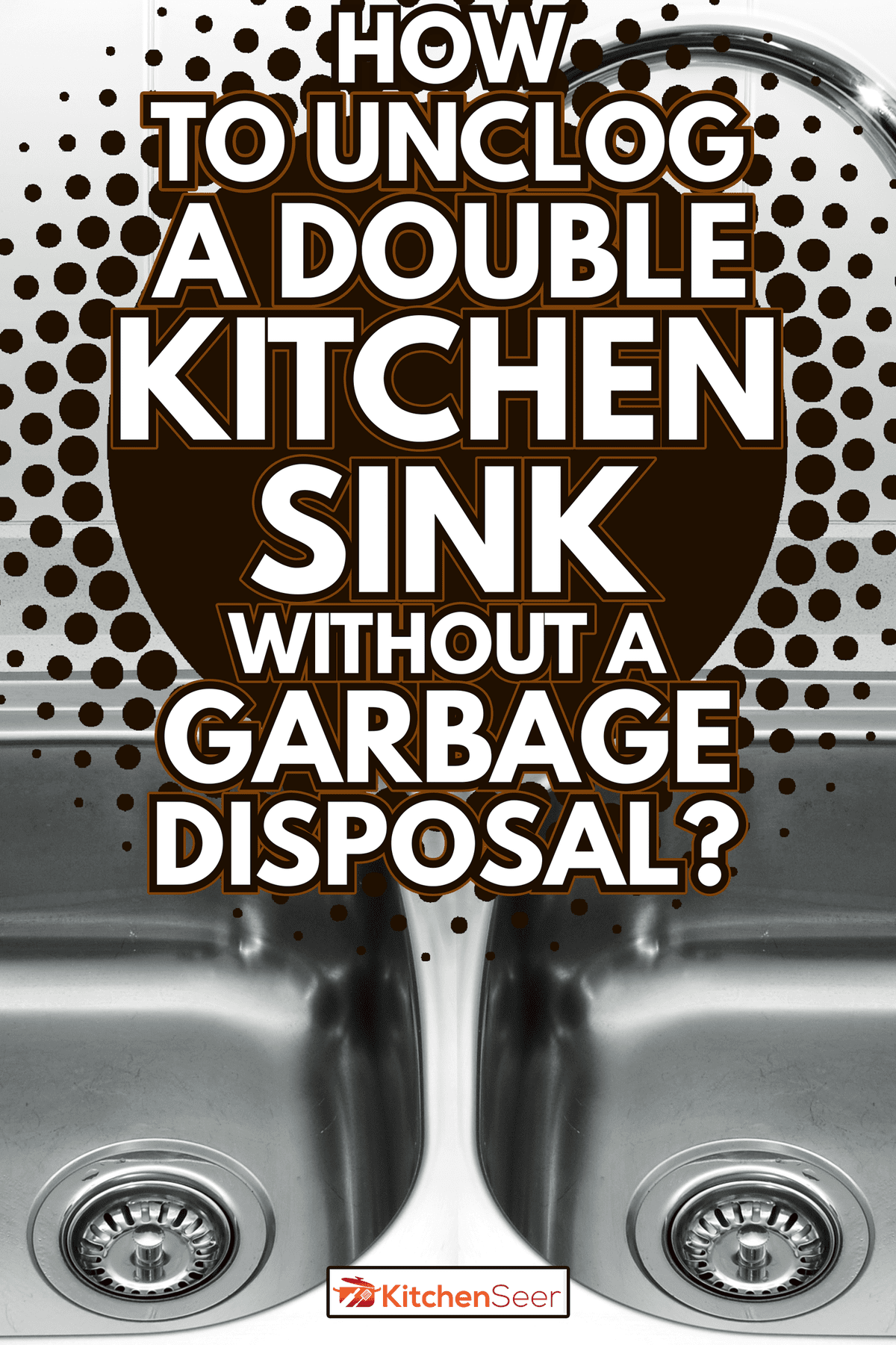
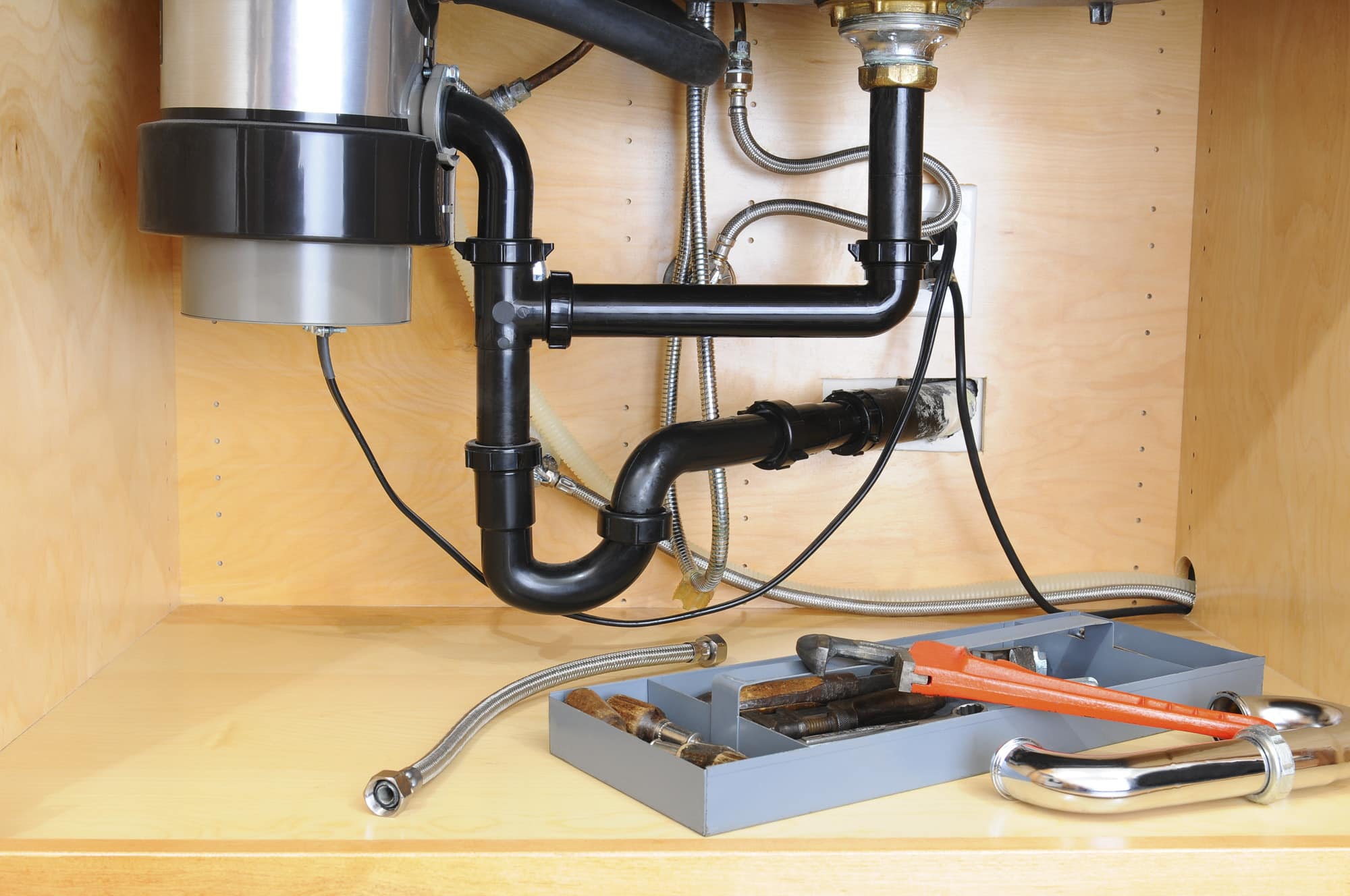

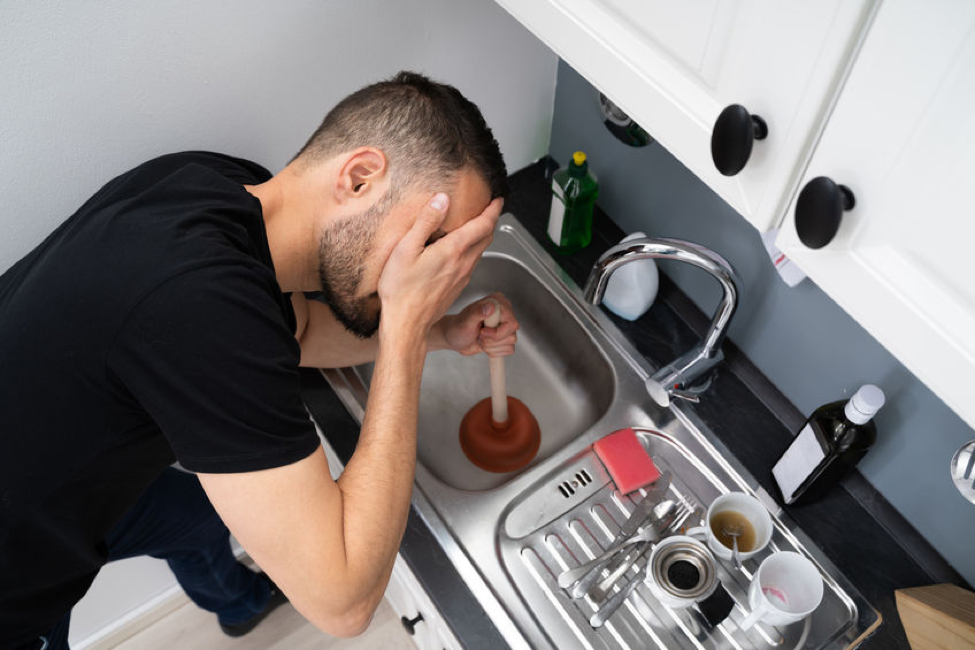



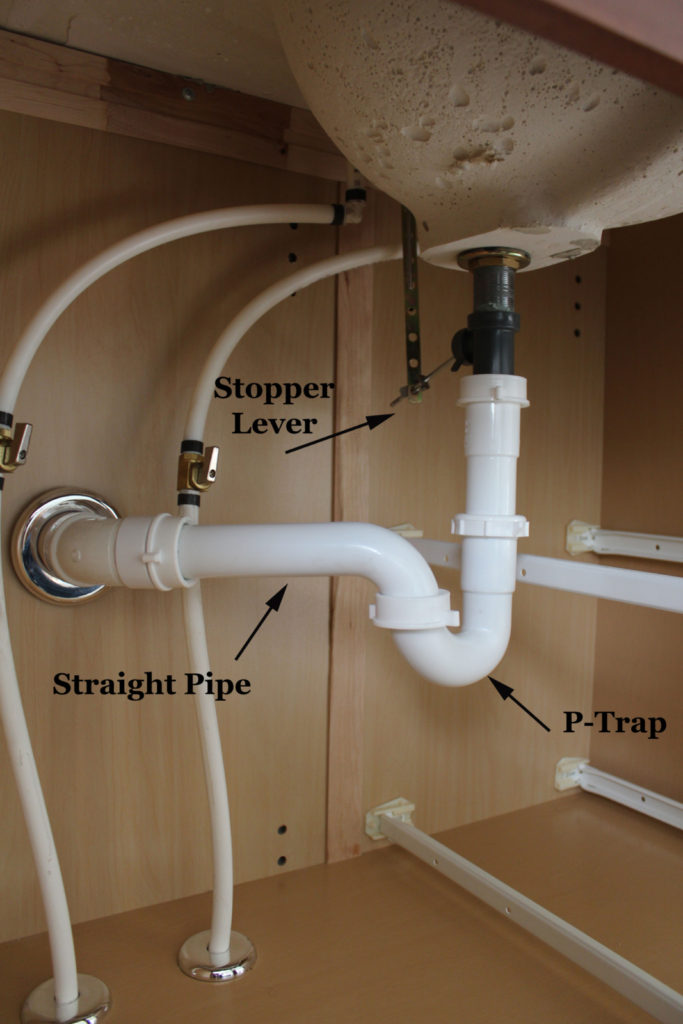













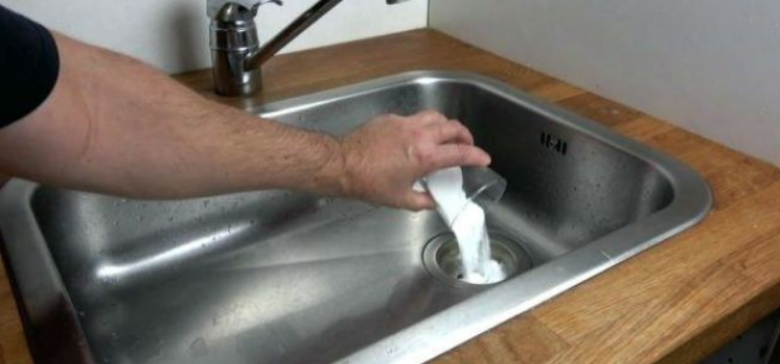
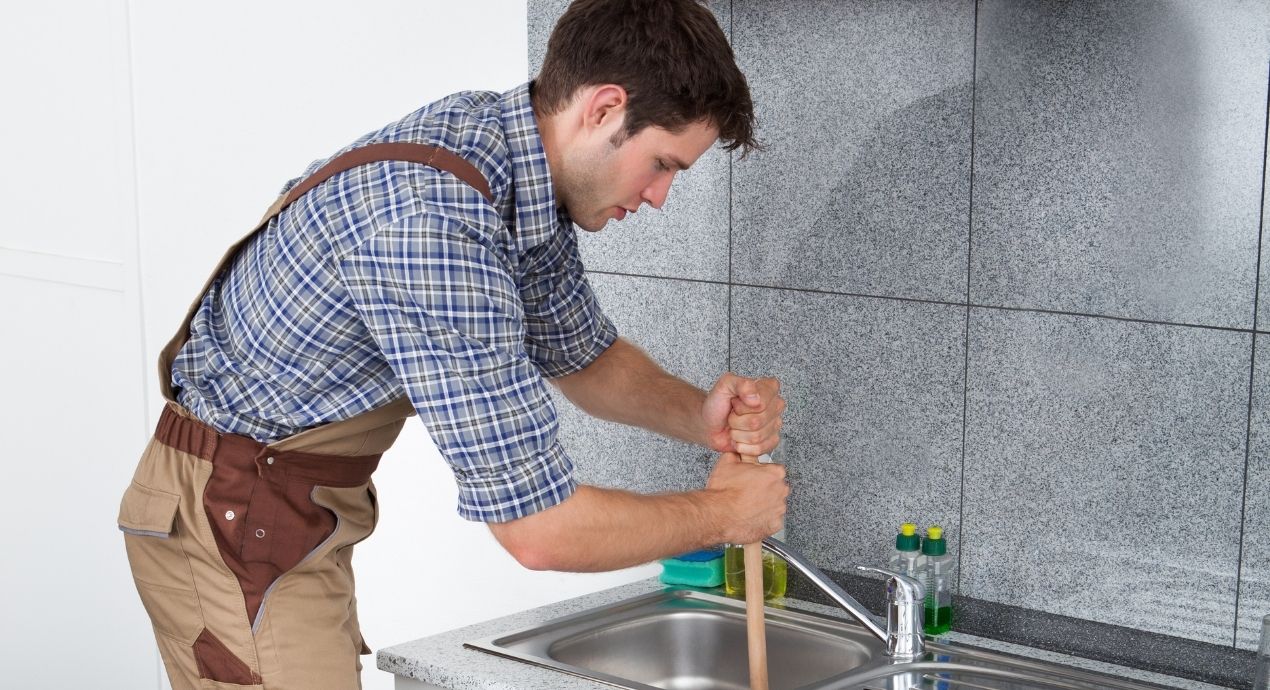



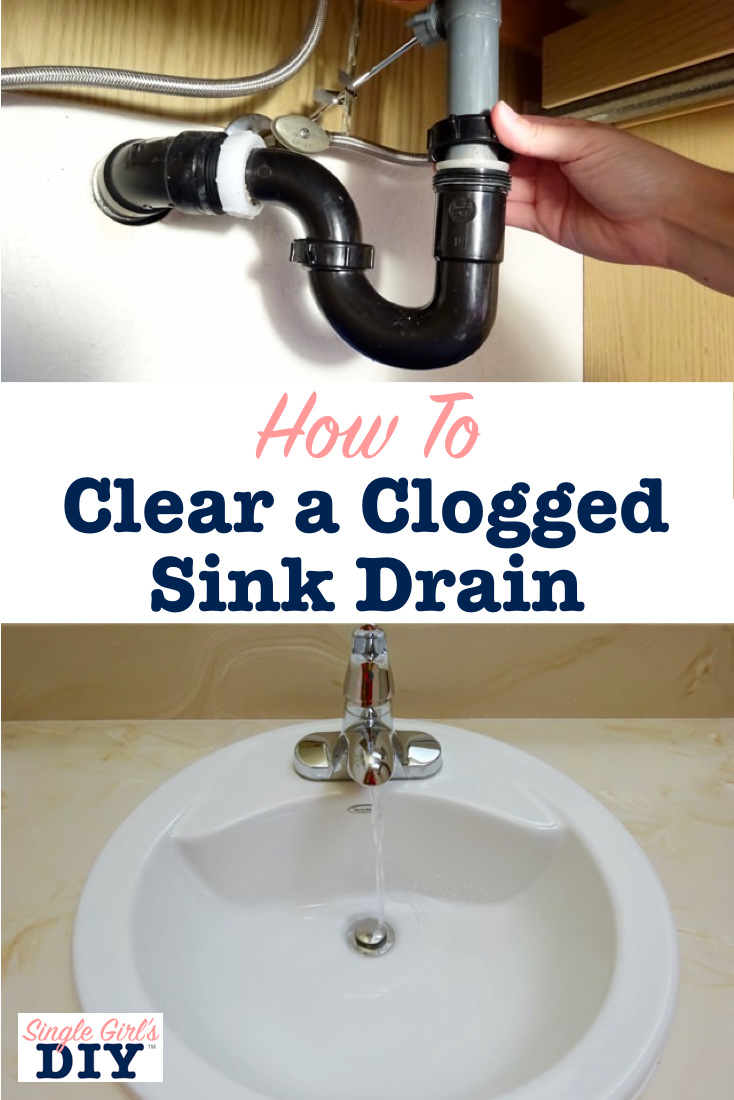


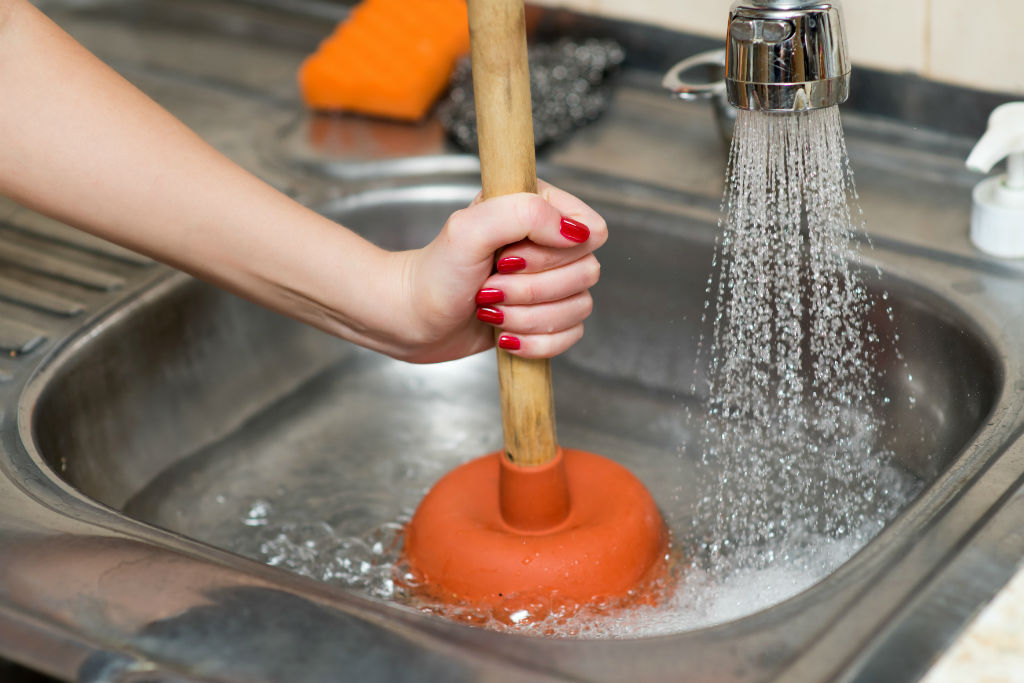
:max_bytes(150000):strip_icc()/freshen-and-unclog-drain-with-baking-soda-1900466-22-bbf940b70afa4d5abef0c54da23b1d3f.jpg)












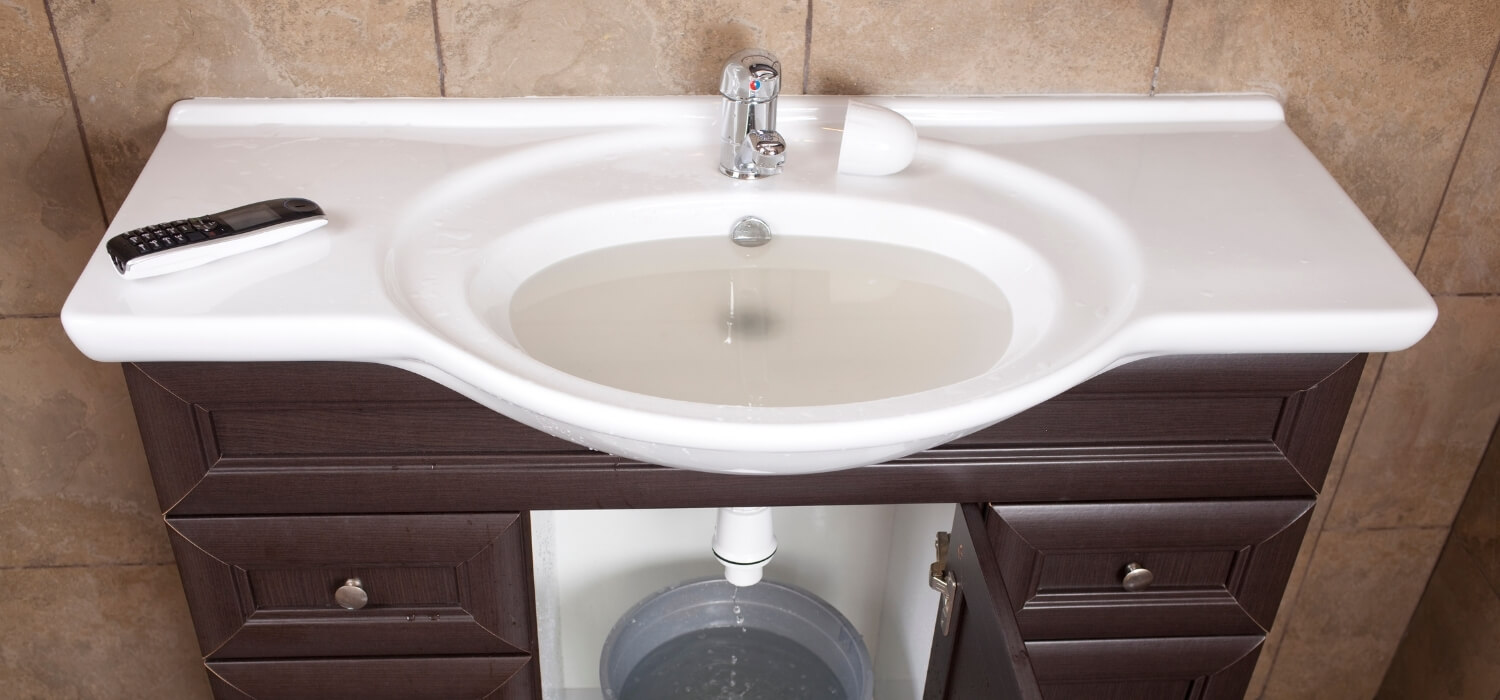
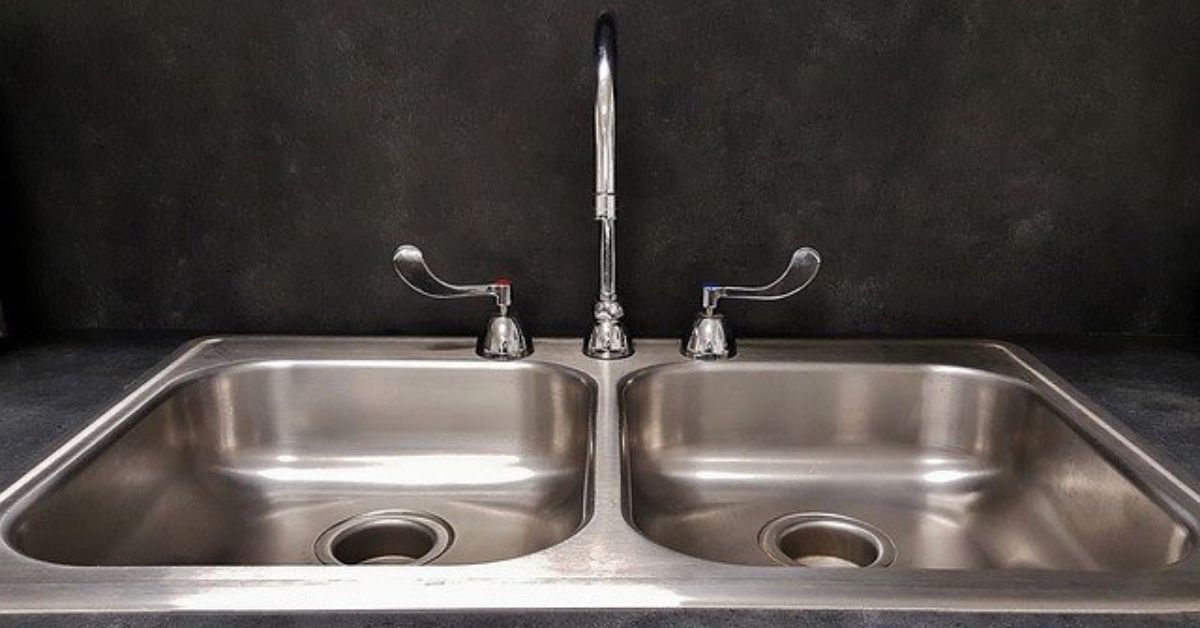




:max_bytes(150000):strip_icc()/Five-Ways-to-Fix-a-Slow-Sink-Drain-05-a5fceccbd5a64b1b8730ee1e24b81b4f.jpg)
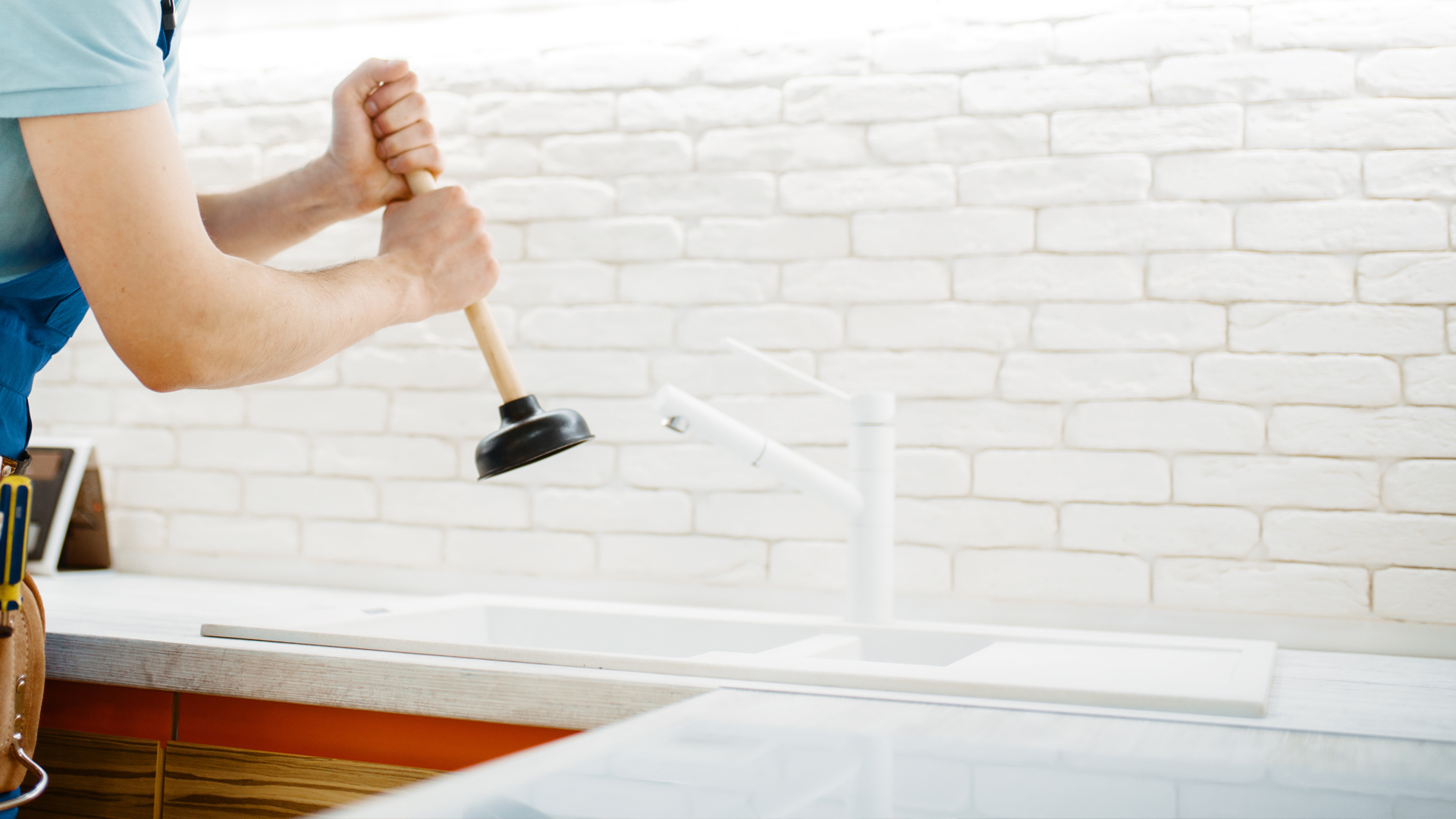

:max_bytes(150000):strip_icc()/Five-Ways-to-Fix-a-Slow-Sink-Drain-04-a74c2894c53740158cd94024350b879c.jpg)







